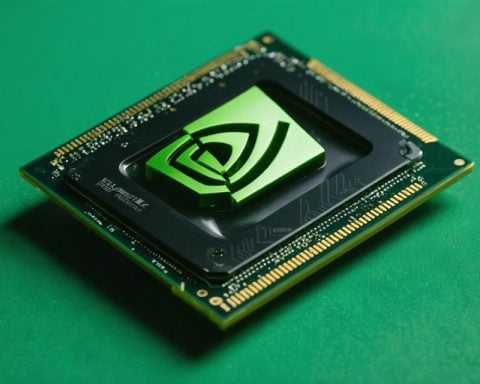Revolutionizing Electric Vehicle Maintenance
Ford is pioneering significant improvements to electric vehicle battery repair processes, according to a recent patent application. Filed with the United States Patent and Trademark Office on June 12, 2023, and published on December 12, 2024, this innovative concept aims to enhance the efficiency of battery module replacement.
Rather than requiring the entire battery pack to be removed for repairs, Ford’s approach envisions a system where individual modules can be easily swapped out. This advancement could lead to lower repair expenses and a more sustainable lifecycle for EV batteries, enabling some packs to be refurbished instead of entirely replaced.
The design retains the familiar layout of battery packs under the vehicle’s floor, featuring multiple modules containing numerous battery cells. The introduction of removable electrical terminals and spring-loaded connectors is intended to facilitate straightforward module replacements.
Ford’s filing also highlights the potential of immersion cooling, a technique where components are cooled using a non-conductive fluid, thus minimizing electrical risks. This concept is gaining traction in the EV sector, especially as traditional liquid cooling methods can complicate access to battery modules.
As the industry progresses, competing manufacturers are exploring alternative cooling methods and configurations. By advancing battery repair technology, Ford is positioning itself as a leader in the electric vehicle market, potentially outpacing even established giants like Tesla.
Revolutionizing Electric Vehicle Maintenance: A Sustainable Future
Ford’s recent innovations in electric vehicle (EV) battery maintenance could have profound implications for the environment, humanity, and the global economy. Their approach, which allows for the repair and replacement of individual battery modules instead of entire packs, is not just a technological advancement, but a strategic move towards more sustainable automotive practices.
One of the most pressing environmental concerns related to electric vehicles is the sustainability of battery production and disposal. Currently, EV batteries are typically made from lithium, cobalt, and nickel, which are mined and processed in ways that can be harmful to both the planet and local communities. By facilitating individual module replacements, Ford’s innovation may contribute to reducing the number of batteries that need to be produced and, consequently, the environmental footprint associated with mining these materials.
In addition to the environmental benefits, this innovation can significantly affect humanity. As EV adoption continues to rise globally, a more efficient and less costly battery maintenance process means that individuals and businesses will have a lower barrier to entry when transitioning to electric vehicles. This democratization of technology can lead to broader access to cleaner transportation options, improving air quality and public health by reducing reliance on fossil fuels.
Economically, the implications are substantial. By lowering the cost of repairs through modular replacements, Ford could enhance the lifespan of EVs, making them more attractive investments for consumers. This will spur economic activity within the automotive repair sector, create jobs, and possibly lead to lower vehicle ownership costs over time. Furthermore, improved repairability can extend the used EV market, fostering a circular economy where materials are continuously repurposed, leading to reduced waste and resource consumption.
In looking toward the future of humanity, the shift toward modular battery systems aligns with global sustainability goals. As nations commit to reducing carbon emissions and combating climate change, advancements like Ford’s battery repair process play a critical role in transforming transportation. The ability to maintain and refurbish batteries can make electric vehicles a more viable option for a larger segment of the population, promoting a shift toward greener mobility solutions.
In conclusion, Ford’s pioneering advancements in EV battery maintenance represent more than just an evolution in automotive technology; they signify a substantial step toward a more sustainable future. By addressing environmental, social, and economic challenges, this innovation not only empowers individuals and communities but also strengthens the commitment to a cleaner, more sustainable planet for generations to come. As Ford and other manufacturers continue to innovate, the reverberations of these advancements will be felt across the world, shaping a future where electric vehicles are not just alternatives but the norm.
Revolutionary Battery Maintenance: Ford’s Game-Changer for Electric Vehicles
Revolutionizing Electric Vehicle Maintenance
Ford’s recent patent application marks a pivotal development in the area of electric vehicle (EV) battery maintenance, aiming to transform how repairs are conducted. Filed on June 12, 2023, and published on December 12, 2024, this patent outlines a system designed to improve the efficiency of battery module replacement.
Key Features of Ford’s Innovative Approach
1. Modular Replacement System: Unlike traditional methods requiring an entire battery pack removal, Ford’s system allows specific battery modules to be swapped out independently. This modular design not only streamlines the repair process but potentially lowers costs associated with battery maintenance.
2. Sustainability Focus: By enabling refurbishment rather than wholesale replacement, Ford’s battery repair strategy promotes a more sustainable lifecycle for electric vehicle batteries. This not only benefits consumers but also addresses environmental concerns related to battery waste.
3. Enhanced Access and Safety: The design retains the standard configuration of battery packs under the vehicle’s floor and incorporates removable electrical terminals and spring-loaded connectors. These features facilitate quick and safe access to individual battery modules.
4. Immersion Cooling Technology: Ford is also exploring immersion cooling techniques, which use a non-conductive fluid to maintain optimal temperatures while minimizing electrical risks. This innovative approach is becoming more popular in the EV market, providing advantages over traditional liquid cooling systems that can hinder access during repairs.
Pros and Cons of Ford’s Battery Repair Innovations
Pros:
– Reduced Repair Costs: By allowing for module-specific repairs, overall maintenance expenses can be significantly lowered.
– Environmental Benefits: Greater emphasis on refurbishing batteries contributes to sustainability efforts within the automotive industry.
– Improved Safety: Advanced cooling methods reduce electrical risks during maintenance.
Cons:
– Initial Implementation Challenges: Adapting existing infrastructure and training technicians may pose hurdles in the short term.
– Market Acceptance: Competing EV manufacturers may need time to adopt similar technologies, creating a varying landscape of repair capabilities.
Market Trends and Predictions
The automotive industry is rapidly shifting towards electric vehicles, with predictions indicating that by 2030, nearly 50% of new car sales will be electric. Ford’s focus on battery maintenance innovations positions it strategically in this evolving market. As competition heats up, brands that can efficiently manage battery servicing will likely gain a competitive edge.
Insights and Comparisons
While Tesla has long dominated the EV market, advancements such as those proposed by Ford may change the landscape. As manufacturers explore various cooling and repair techniques, Ford’s patent highlights a significant step towards enhancing service efficiency and longevity of electric vehicle batteries.
For further insights and the latest updates on electric vehicle technology, visit AutoWeek.
In conclusion, Ford’s innovative battery maintenance solutions not only signify a leap forward in repair efficiency but also underline a commitment to sustainability and safety within the electric vehicle ecosystem. As the industry adapts and evolves, Ford’s pioneering approach could very well set new standards for EV maintenance.


















